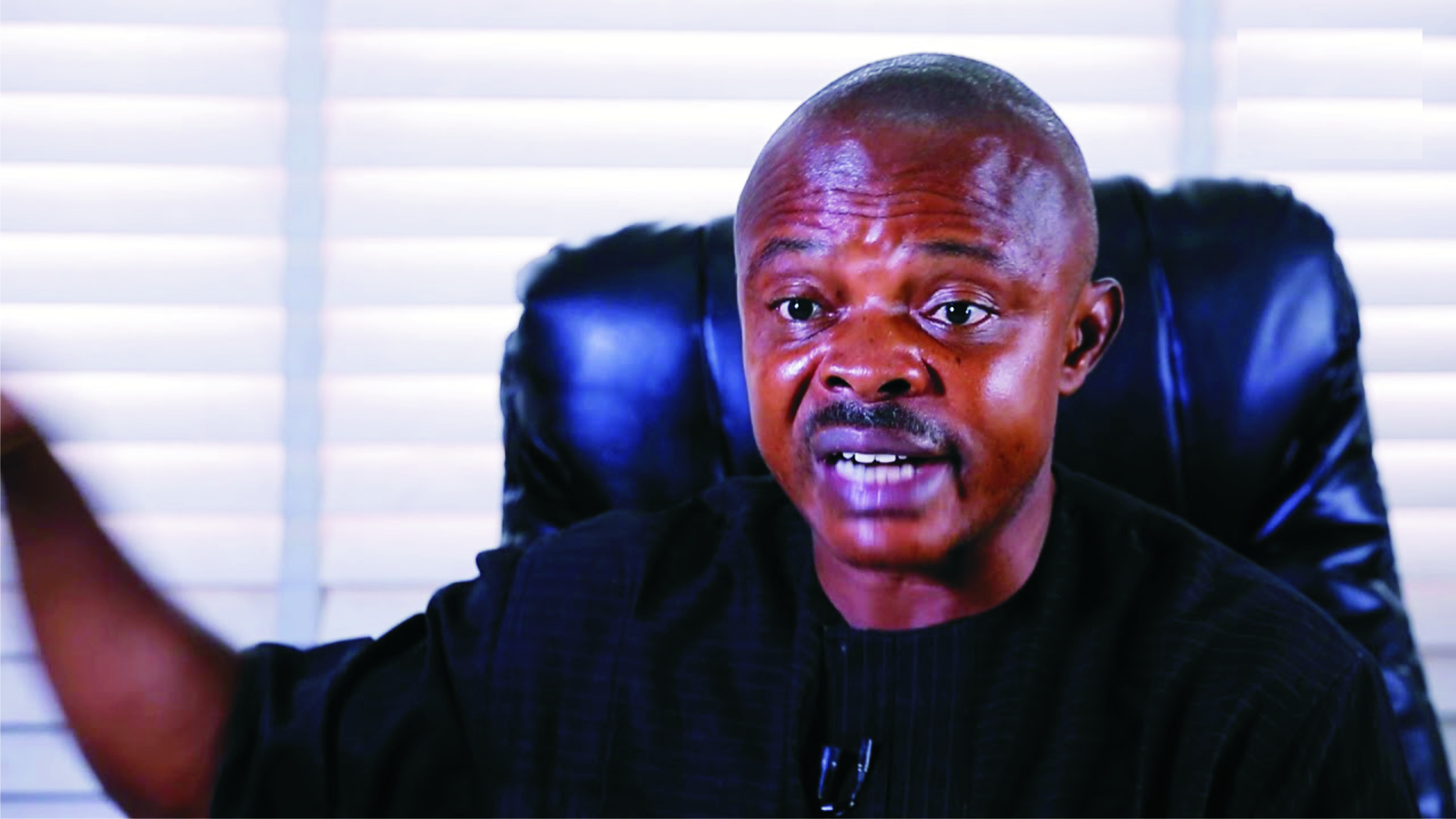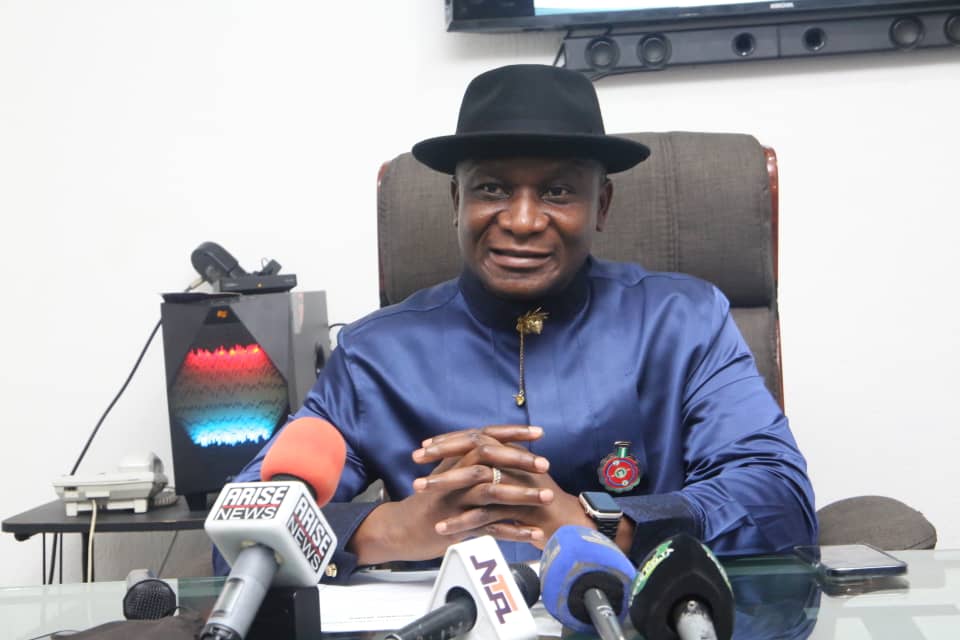News
Exploration Suffers Setback As Nigeria’s Rig Count Dips 38.5% To 75
The rig count of Nigeria has dropped by 38.5per cent to 75 in the first 10 months (January – October), of 2021, from 122 recorded in the corresponding period of 2020.
This was revealed in a data obtained from the Monthly Oil Market Reports (MOMR) of the Organisation of Petroleum Exporting Countries (OPEC).
The rig count is utilised globally to measure exploration and production activities in the upstream sector of the petroleum industry.
According to the data, the highest rig count of 11 was recorded in August and September 2021, while the lowest of five was recorded in April and June, 2021, compared to the highest and lowest of 23 and six recorded in February and July, 2020, respectively.
However, this showed that the nation did not invest much of its resources to explore and produce oil and gas during the period under review.
However, the organisation did not provide reasons for the dwindling rig count, but reports point to the COVID-19 pandemic and the prolonged delay associated with the passage of the Petroleum Industry Act (PIA).
In any case, the rig count of some African oil and gas nations showed an improvement during the period under review.
For instance, the rig count of Angola stood at 40, indicating an increase of 33.1per cent when compared to 30 recorded in the corresponding period of 2020.
Speaking on the development, National President, Oil and Gas Service Providers Association of Nigeria (OGSPAN), Maxi Colman Obasi, said: “Lack of significant investment usually leads to low depletion of current reserves, due mainly to continued oil and gas production.
“It is highly probable that because of lack of legislation, it was not possible for the nation to attract much investment in the past.”
Obasi, who commended the legislators for the completion of work on the nation’s PIA, said: “But armed with the current PIA, the nation would likely start to witness substantial investment, capable of boosting investment in the industry.
“In other words, the industry stands a chance to record a substantial increase in rig count, exploration and the reserves addition.
“This should be encouraged as Nigeria had in the past failed to achieve its 40 billion barrels reserves target by 2020”.
Previously, Ghana National Petroleum Corporation (GNPC) Professorial Chair in Oil and Gas Economics and Management, Institute for Oil and Gas Studies, University of Cape Coast, Ghana, Prof. Omowumi Iledare, had said: “The rig count is far below expectation, bearing in mind that Nigeria is a leading producer with 30billion barrels reserves and over 200trillion standard cubic feet of gas.
In any case, Minister of State for Petroleum Resources, Chief Timipre Sylva, expressed hope that the PIA would stimulate investment, leading to increased rig deployment and other activities in the industry.
Specifically, he said: “The PIA 2021 will undoubtedly assist in harnessing Nigeria’s potential to achieve its plan of increasing oil production to 4mb/d and oil reserves from 37bbls to 40bbls, while also drawing on the country’s estimated 600TCF of natural gas reserves to provide clean and efficient energy.
“These resources will be crucial in supplying world markets with a broad portfolio of energy options, as well as supporting the global endeavour to alleviate energy poverty as envisioned in the United Nations’ Sustainable Development Goal 7.
“Furthermore, generous incentives have been proposed in the PIA 2021 to enable development, distribution, penetration and utilisation of gas.
“The National Gas Expansion Programme was also launched in January 2020 to drive domestic utilisation. Our proven gas reserves are sufficient to cover current demand levels and support plans for the construction of nine new gas-fired power plants with a combined name-plate capacity of nearly 6,000 MW by 2037.
“This validates gas as a viable and transformational fuel for industrial development. This is why President Muhammadu Buhari, who is also the minister of petroleum resources has declared 2021-2030 as the Decade of Gas, which provides the fulcrum for focusing effort and resources required at making gas the centrepiece of Nigeria’s economy by 2030.”
He added: “The PIA 2021 also preserves existing levels of government take for a transition period through grandfathering provisions, and proposes a fiscal regime that encourages investment in order to monetise existing reserves before the clock runs out.
“Thus, provisions relating to voluntary conversion, production allowances, lower royalties and taxes, cost optimisation focus, etc have been enshrined therein to address the envisaged fiscal vulnerabilities.”
News
May Day: Labour Seeks Inclusiveness In Policy-making

The Organised Labour yesterday, called on the Federal Government to ensure inclusiveness in policy making and guide against erosion of rights, such as free speech and association.
The President, Nigeria Labour Congress (NLC), Mr Joe Ajaero made the call at the 2025 Workers’ Day celebration held at the Eagle’s Square, Abuja.
The Tide source reports Ajaero and the President, Trade Union Congress, Mr Festus Osifo delivered a joint statement on behalf of the organised labour at the event.
Ajaero described May Day as, not only a moment to honour workers’ sacrifices, but also a platform to demand justice and accountability from those in public office.
He frowned at the alleged suppression of protests, and the erosion of rights of workers by some agents
According to him, workers have a duty to resist economic injustice, insecurity, and policies that undermine their dignity.
Speaking on the theme of the day, the NLC President underscored the need for Nigerian workers to reclaim the civic space and resist policies that contribute to worsening economic conditions.
“Our theme this year – “Reclaiming the Civic Space in the midst of Economic Hardship – reflects the urgent need for citizens to protect democracy and push back against repression.
“The civic space, where Nigerians express their concerns and challenge injustices is shrinking.
“If we fail to reclaim this space, the foundation of our democracy risks collapse,” he said
Ajaero, therefore, urged workers to unite and resist division, fear, and despair.
He also urged them to mobilise and organise for change, declaring that the right to demand better conditions is non-negotiable.
“Without workers, there is no society; without labour, there is no development. We must take our place in the fight for economic justice and democratic governance.”
Speaking in the same veins, Osifo said workers are the backbone of the nation—the educators, healthcare providers, builders, farmers, and innovators who sustain its economy -.
He stressed the need for the labour to reclaim the civic space even in the midst of economic hardship.
News
2025 UTME: JAMB Disowns Site Requesting Payment From Candidates

The Joint Admissions and Matriculation Board (JAMB) has disassociated itself from a fraudulent site requesting payments from candidates who missed the ongoing 2025 Unified Tertiary Matriculation Examination (UTME).
The board said that the site, “Copyrightwriter Personal J Rescheduling Flw” and account number 8520641017 at Sterling Bank, associated with it, are scam.
The disclaimer is contained in a statement made available to newsmen in Abuja on Thursday by the Board’s Public Communication Advisor, Dr Fabian Benjamin.
Benjamin said the account is being exploited to defraud unsuspecting candidates who missed their UTME.
“We issue this urgent notice to inform the public about this nefarious scheme targeting candidates who were unable to participate in the UTME.
“Some unscrupulous individuals are deceitfully soliciting payments of N15,700 under the false pretence of offering rescheduling services for the examination.
“Let us be unequivocal: this, it is a blatant scam, and we are confident that the public will not fall prey to such cheap and regressive tactics.
” The individuals behind this scam have no affiliation with JAMB or any legitimate government agency.
“The account details provided in these communications are entirely fictitious and bear no connection to any official processes; they exist solely for the purpose of perpetrating fraud,” he said.
Benjamin called on Sterling bank to take immediate and decisive action against this criminal activity.
According to him, JAMB has reported the matter to the relevant security agencies and actively pursuing those responsible for this deceitful act.
He further said that “JAMB does not reschedule examinations for candidates who miss their scheduled tests due to reasons unrelated to the Board’s actions”.
He, however, said that the Board is conducting a thorough investigation for candidates whose biometrics failed during verification and were thus unable to sit for the examination.
He said those without discrepancies would be invited to retake the examination at no cost , stressing that “no cost is required”
“It is imperative to understand that JAMB does not charge any fees for examinations after a candidate has completed their registration.
“We strongly urge all candidates to remain vigilant and not to succumb to these fraudulent schemes.
“Protect yourselves and report any suspicious activity immediately,” he explained.
News
NDDC Seeks UN’s Support To Accelerate Niger Delta Development

The Niger Delta Development Commission (NDDC) has expressed its willingness to partner with the United Nations (UN) to accelerate the development of the Niger Delta region.
Dr Samual Ogbuku, Managing Director of the NDDC, made the appeal in a statement issued by the commission’s Director of Corporate Affairs, Mrs Seledi Thompson-Wakama, in Port Harcourt on yesterday.
According to the statement, Ogbuku sought the UN’s support during his visit to the UN Resident and Humanitarian Coordinator (UNRHC), Mr Mohammed Fall, at the UN regional office in Abuja.
He called on the global body to provide the NDDC with technical assistance and expert services to support the region’s development.
“We are eager to collaborate with the UN, recognising that the state governments in the region and the NDDC alone cannot achieve the level of regional development required,” he said.
Ogbuku identified key areas where support would be needed, including the provision of portable and affordable drinking water powered by high-tech solar energy sources.
He also highlighted the importance of reforesting the mangrove swamps, which have been severely damaged by decades of environmental degradation caused by oil exploration in the Niger Delta.
“Although the NDDC has made progress in providing solar-powered streetlights across the region, we still require UN support in delivering solar energy solutions for residential buildings.
“We also wish to explore the possibility of installing solar mini-grids in homes across communities, which would boost local commerce and trade,” he added.
The NDDC managing director further appealed for increased UN involvement in areas such as healthcare, education, youth training, gender development, and food security.
Ogunku stated that such interventions would significantly enhance the standard of living in the region.
In response, Fall affirmed the UN’s readiness to collaborate with the NDDC to fast track development in the Niger Delta.
He assured that the UN would support initiatives in food security, job creation, education, and renewable energy, among other areas.
“We aim to approach development in the Niger Delta holistically, rather than focusing solely on environmental pollution.
“This is merely an entry point; however, the UN’s development vision aligns with the Sustainable Development Goals (SDGs), which are designed to positively impact various aspects of people’s lives,” Fall stated.
He assured the NDDC of continued and fruitful engagements to drive the region’s development.

